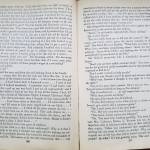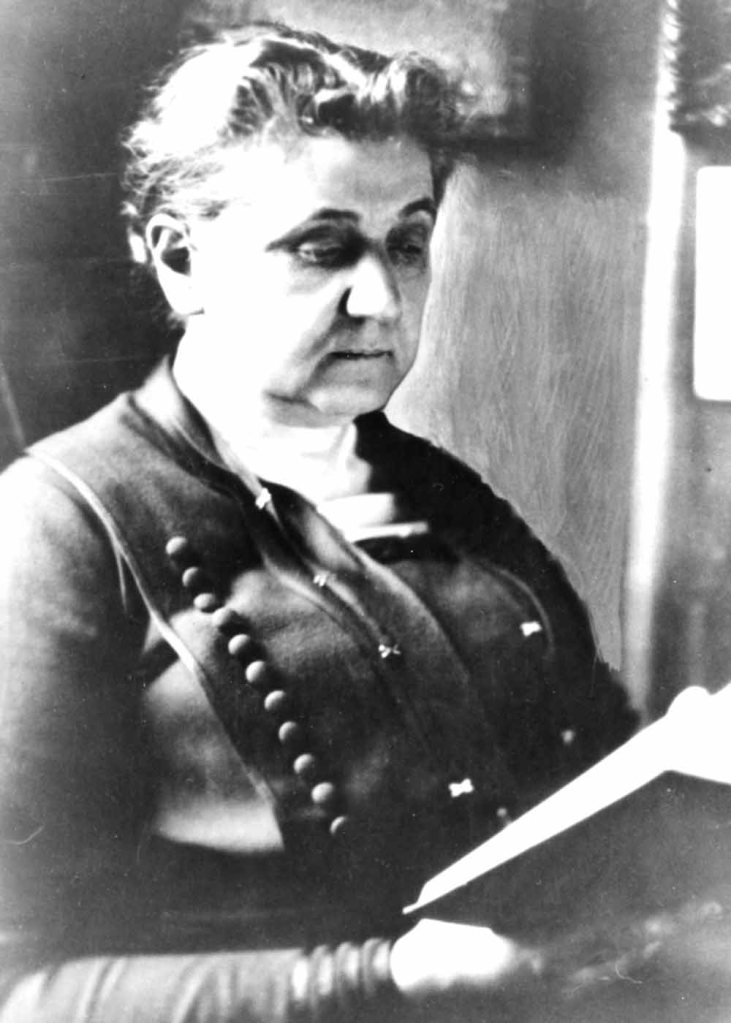The biographer of Nobel Peace prize-winning (and Rockford University graduate) Jane Addams recounts this incident, in which Addams invokes Kantian duty-ethic in response to a friend’s desire for some gratitude in response to her charitable works:
“Her wealthy friends like Louise deKoven Bowen [1859-1953] viewed gratitude for their good work as the only payment they required of the poor. But Addams soon deflated them. In complaint one day Bowen told Addams, ‘I have done everything in the world for that women and she is not even grateful.’ Bowen recalled that Jane Addams ‘looked at me quizzically and said, “Is that the reason you helped her, because you wanted gratitude?”‘ For Jane Addams, gratitude was not the point. She was helping them because they, like her, were part of the human race. This sense of fellowship left ‘no room for sensitiveness and gratitude.’”[1]
 I’m reminded of a scene in The Fountainhead, when an idealistic young social worker named Catherine Halsey is talking to her uncle, the intellectual Ellsworth Toohey. Catherine is feeling empty, having given much of herself to help those in need, and she is distressed at how unappreciative and ungrateful the recipients often are. “When I started,” she said, she knew that “one can find true happiness only in dedicating oneself to others.”[2] But over time she came to feel discouraged, tired — and to resent those she helped: “I expect people to be grateful to me,” and so on.
I’m reminded of a scene in The Fountainhead, when an idealistic young social worker named Catherine Halsey is talking to her uncle, the intellectual Ellsworth Toohey. Catherine is feeling empty, having given much of herself to help those in need, and she is distressed at how unappreciative and ungrateful the recipients often are. “When I started,” she said, she knew that “one can find true happiness only in dedicating oneself to others.”[2] But over time she came to feel discouraged, tired — and to resent those she helped: “I expect people to be grateful to me,” and so on.
After pouring her heart out, Toohey replies to her:
“What have you been complaining about? About the fact that you are unhappy. About Katie Halsey and nothing else. It was the most egotistical speech I’ve ever heard in my life. … You chose a noble career, not for the good you could accomplish, but for the personal happiness you expected to find in it.”[3]
Toohey goes on to explain that duty and selfless sacrifice mean doing what one should with no thought of reward, material or psychological.
Sources.
 [1] Louise W. Knight, in Dwight Burlingame The Responsibilities of Wealth (Indiana University Press, 1992), p. 125.
[1] Louise W. Knight, in Dwight Burlingame The Responsibilities of Wealth (Indiana University Press, 1992), p. 125.
[2] and [3] Ayn Rand, The Fountainhead (Bobbs-Merrill, 1943), pp. 384-387.
Related:
“Kant and what makes one morally worthy”: “Now an action done from duty must wholly exclude the influence of inclination and with it every object of the will …”
“Friedrich Engels against liberal peace”: “When have you been moral without being interested, without harboring at the back of your mind immoral, egoistical motives?”

And so we live in a society of people who have unconsciously accepted the implication that immorality is requisite to answering their needs, interests and desires.